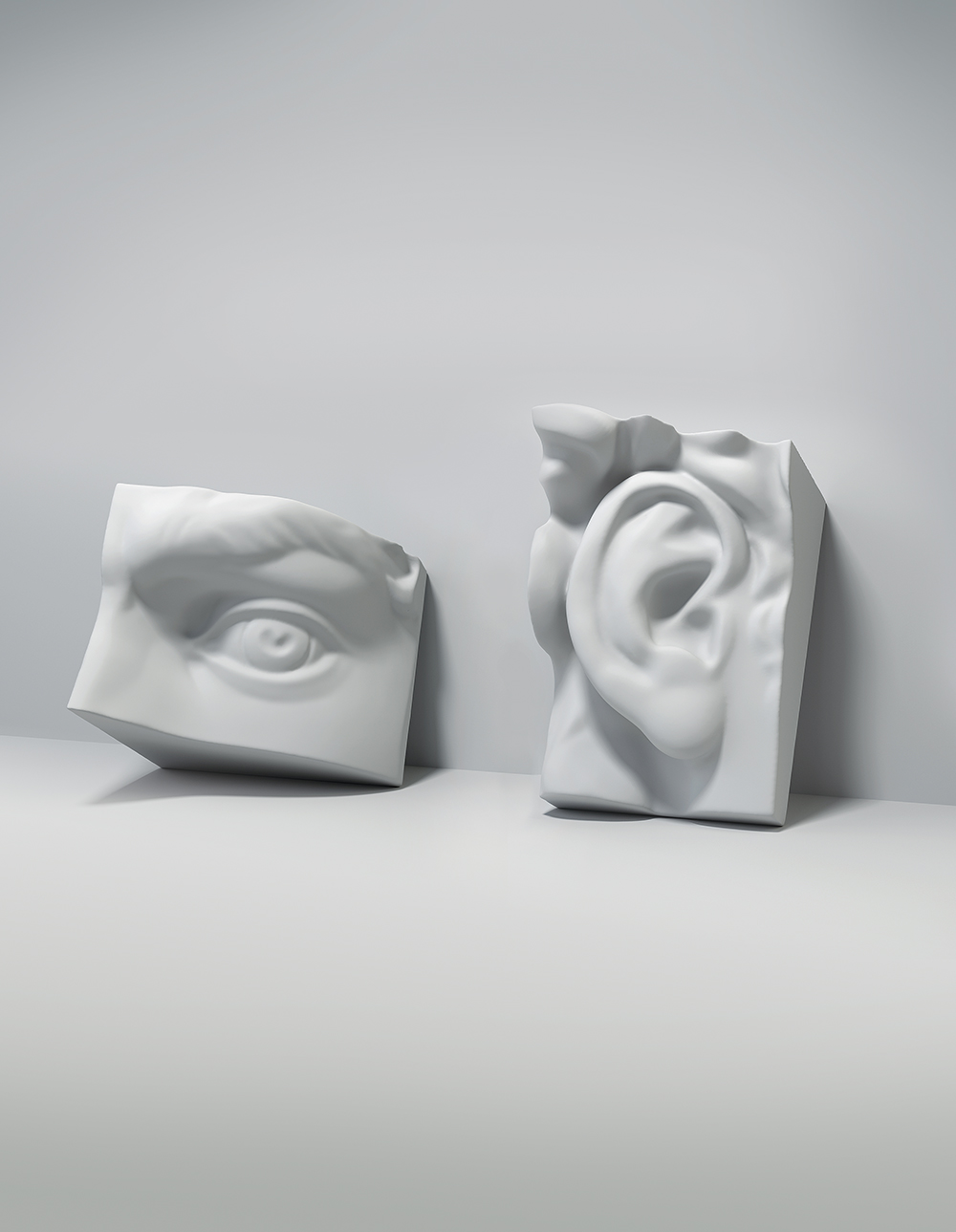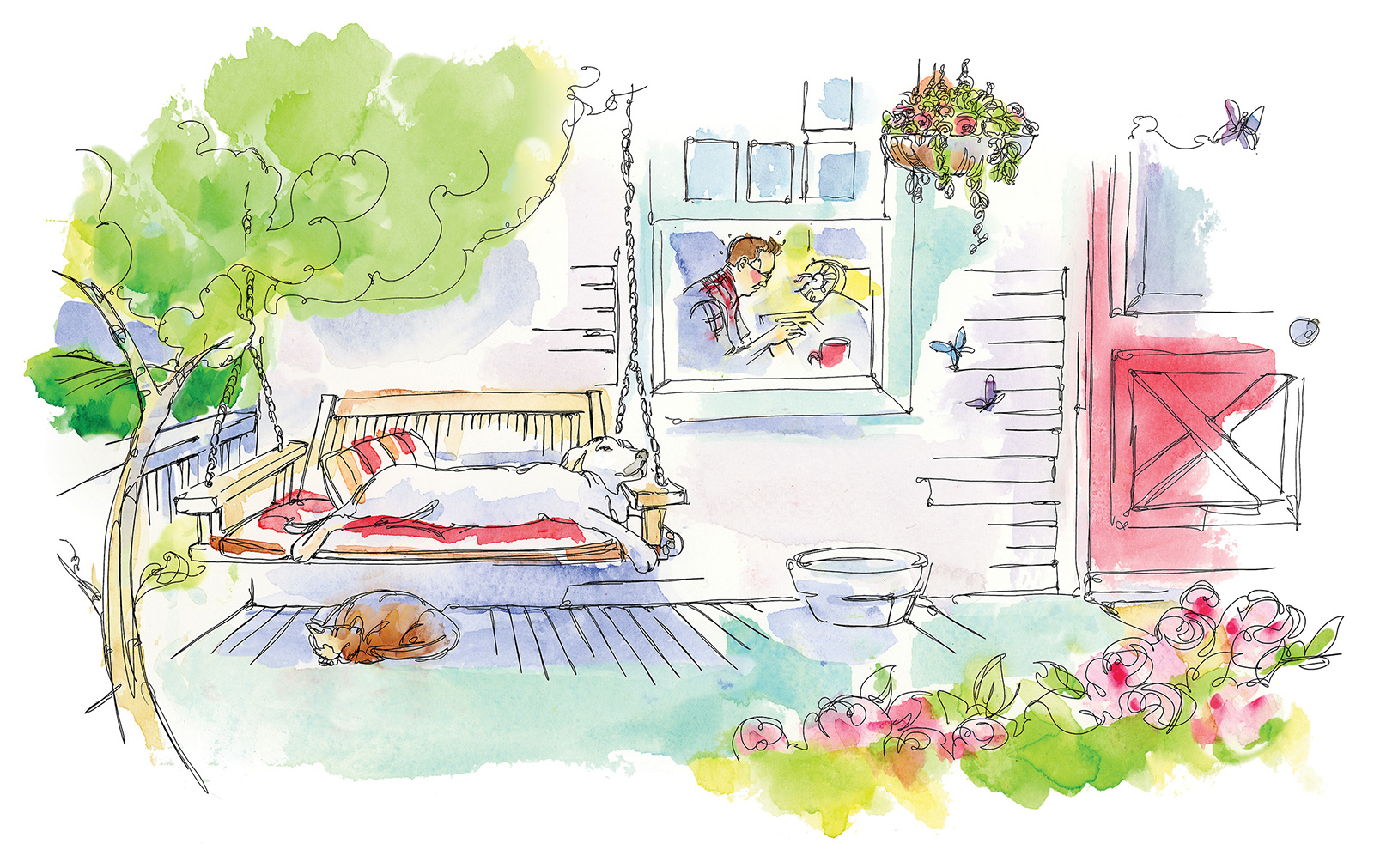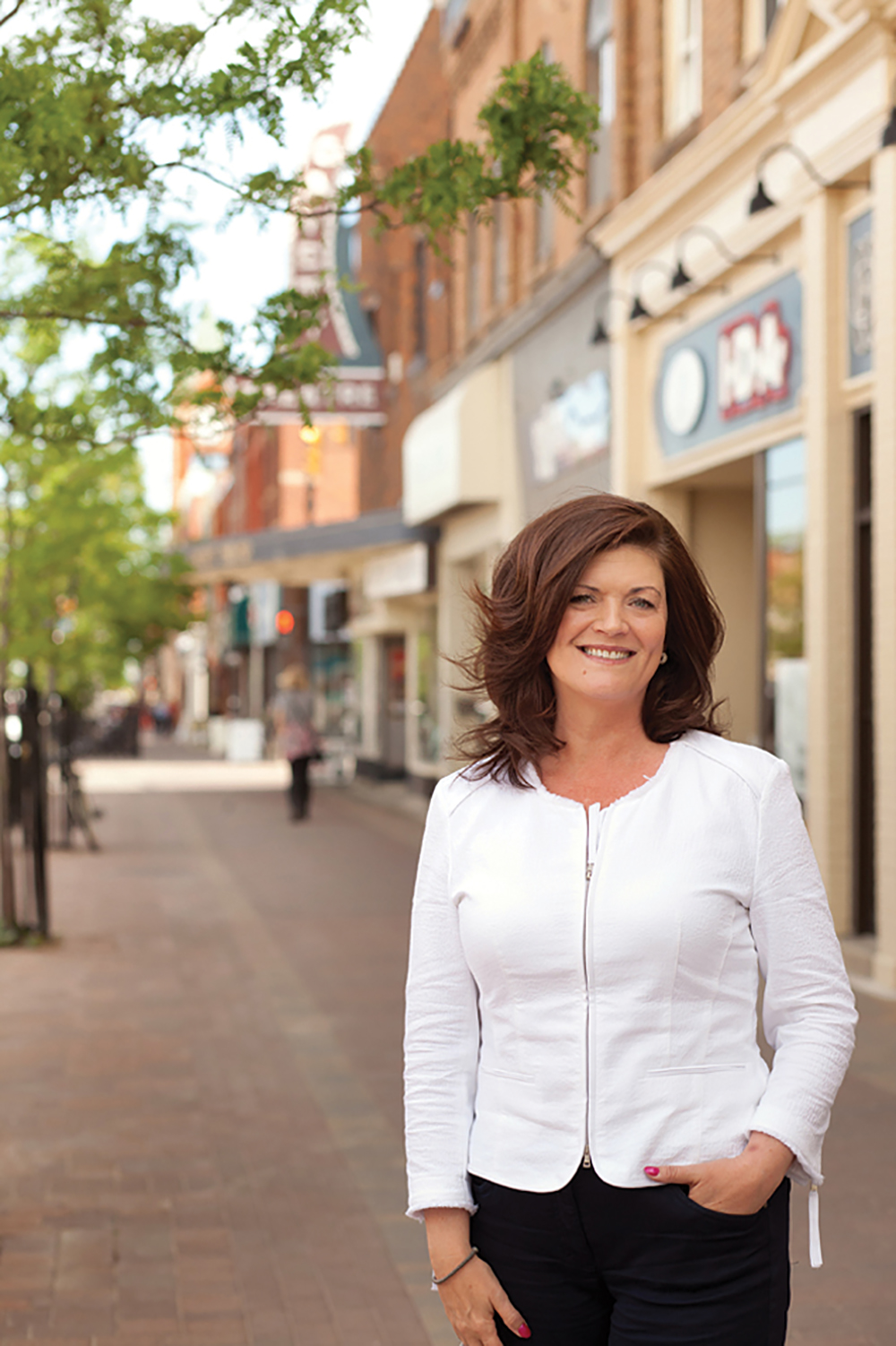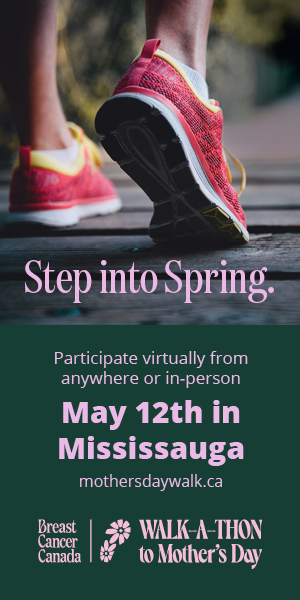Hearing health has a wide-ranging impact on well-being. Here’s why it’s time to stop ignoring yours.
By Jessica Wortsman // Photography By Jessica Crandlemire
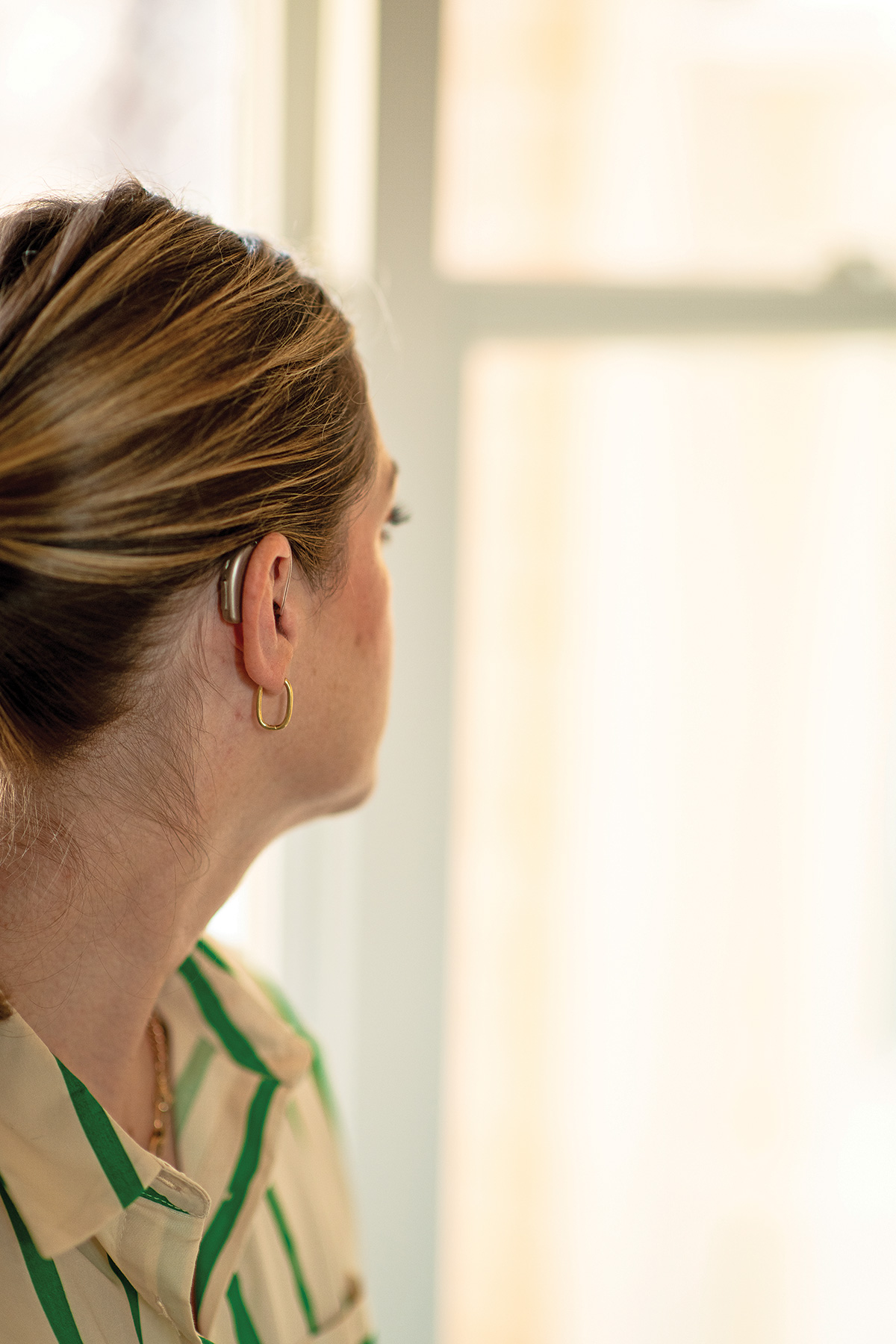
When Collingwood hairstylist Erica Campbell was told she needed hearing aids, she wasn’t surprised. Though only in her twenties at the time, she’d been asking people to repeat themselves all her life, and as a child in school, she’d struggled to keep up. It was bittersweet vindication to discover her academic trouble wasn’t because she didn’t grasp the concepts but because she simply couldn’t hear what the teacher was saying.
Hearing loss isn’t something that only affects the old. In fact, around 60 percent of Canadians aged 19 to 79 live with some form of hearing impairment, whether hearing loss, tinnitus (ringing or buzzing in the ears), or both. More surprising, about half of them remain completely unaware of it.
Genetics, loud noise, infection, injury and certain medications can all contribute to hearing loss, but age-related hearing loss, known as “presbycusis,” is the most common cause.
As we grow older, our auditory system experiences wear and tear. All those years of listening to music turned up in the car and going to concerts without earplugs eventually take their toll. As early as our late forties, high-frequency sounds, like children’s voices, alarms and even birdsong, can become hard to hear. Our hearing continues to decline gradually, with hearing loss becoming more pronounced in our sixties and seventies.
For Jessie Strype, optician and owner of Blink Eyewear in Collingwood, hearing loss was always on her radar because she’d watched her father contend with age-related hearing loss for years. It was during the pandemic, though, that she noticed something had changed. Once the masks went on and the Plexiglas barriers went up, Strype realized how much she’d been relying on seeing people’s mouths to understand what they were saying. Now, she was constantly asking people to repeat themselves. A new hearing test revealed she had a loss and could use a hearing aid.
Though only 38 years old at the time, Strype didn’t hesitate. As a medical practitioner who fits people with devices herself, she says, “It was just such a no-brainer for me.” But that’s not the case with most people.
A new hearing test revealed she had a loss and could use a hearing aid. Though only 38 years old at the time, Strype didn’t hesitate. As a medical practitioner who fits people with devices herself, she says, “It was just such a no-brainer for me.” But that’s not the case with most people.
Jessie Strype
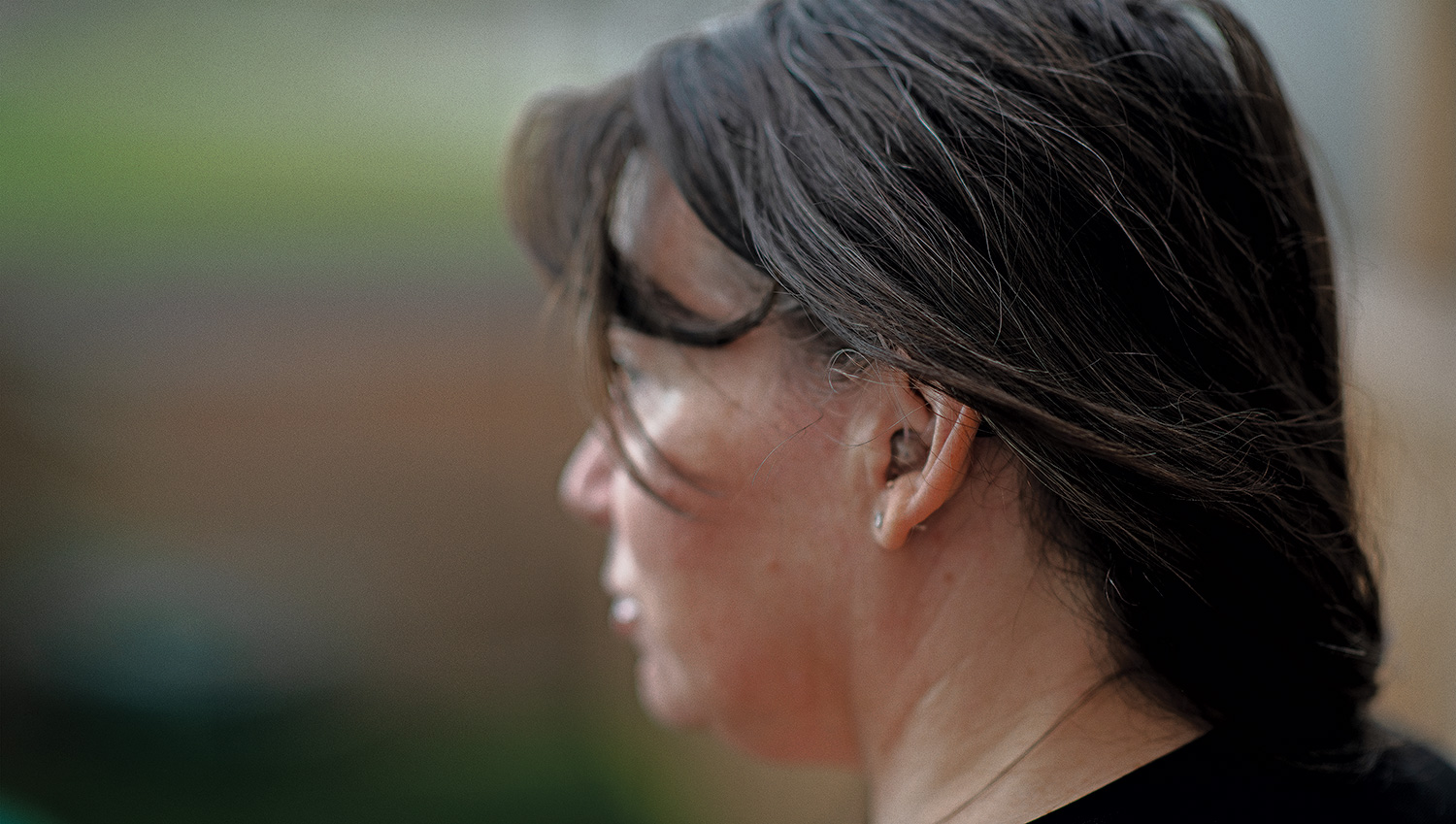
Beyond Judgment and Stigma
Eyeglasses were once considered nerdy until the fashion world deemed them chic. The same thing happened for orthotic shoes like Birkenstocks. Unfortunately, hearing aids have not yet benefited from a similar image makeover. Wearing hearing aids still carries a social stigma, and their association with aging or disability deters many who could benefit from using them.
“If you injure your knee and somebody says you need a brace, you just go get it,” says Dr. Alipasha Rassouli, ENT, based in Owen Sound. “But hearing loss is different. When you tell someone that they have a hearing loss, what they hear is ‘I am old.’” So, they fight it, they deny it, they live with it and make accommodations. But, “it’s no different than needing glasses,” says Rassouli. “You have a loss; you need an aid. It’s as simple as that.”
Strype says most people are really shocked when they find out she wears an aid. “I get a lot of ‘But you’re so young!’” And when people tell her they won’t wear hearing aids because they make them feel old, she’s dumbfounded. “But the alternative is not hearing.”
Campbell, on the other hand, finds people’s perception of her the biggest challenge. Because she’s young (now 49), and because her hearing loss isn’t visible, she says she’s rarely afforded the same understanding, patience and assistance as those with more visible disabilities.
The way people speak to Campbell is what hurts the most. She’s often confronted with annoyance and anger when unable to hear, particularly when someone standing behind her asks her a question. The more they have to ask, the angrier they get.
“I’m not an idiot; I’m just deaf,” she says. “If you’re behind me, you have to touch me. That’s how I know someone’s there.”
Whether due to misunderstanding, denial or stigma, most people avoid dealing with their hearing loss, says Rassouli—often until it’s a little too late.
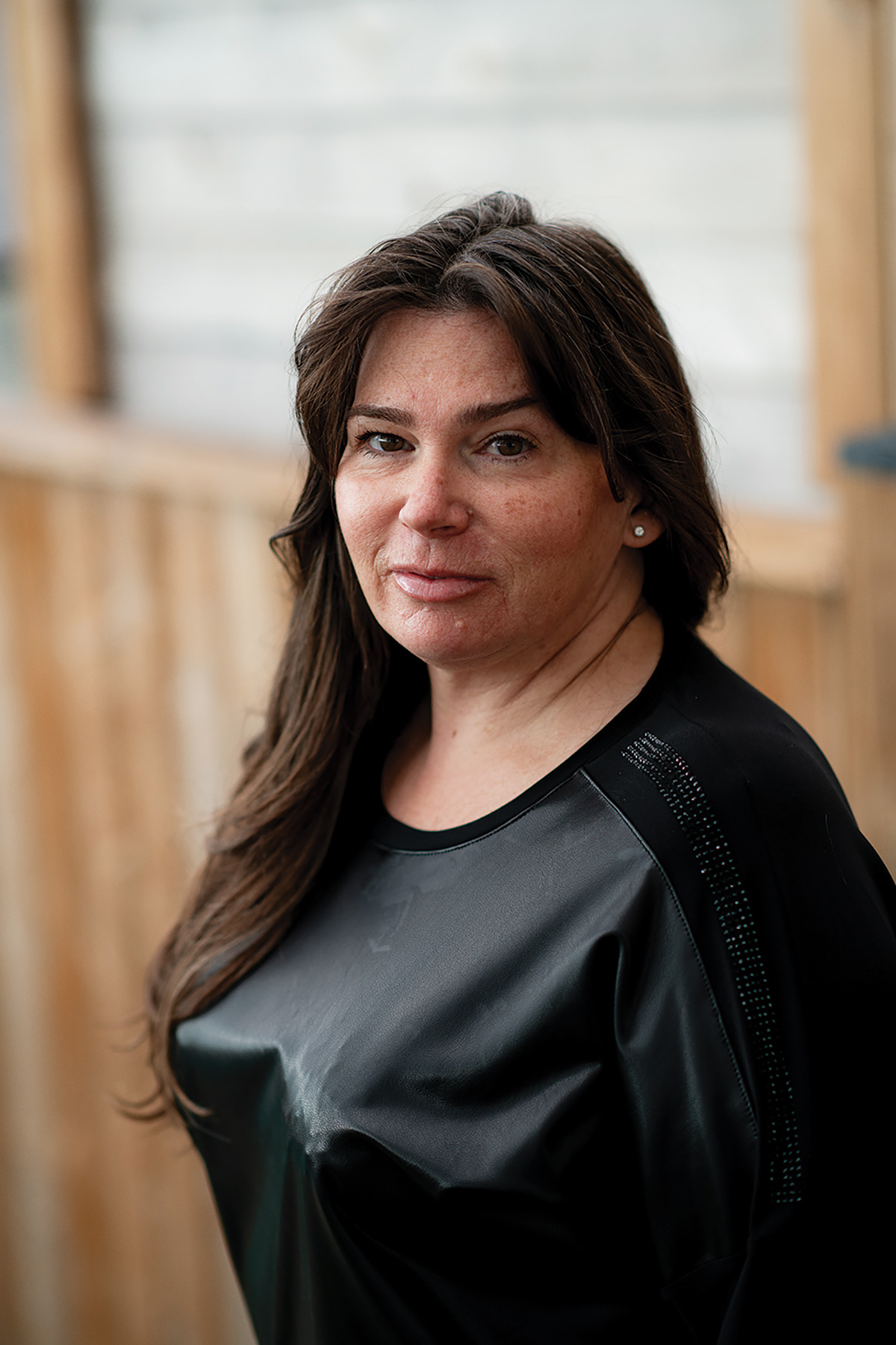
Campbell has recently been able to move into better-quality hearing aids, which have allowed her to hear the little sounds she’d always missed, like the rain or the rustling of tree leaves in the wind.“I used to sit at the cottage and just watch them, but I didn’t realize that they made a sound.”
Erica Campbell

“You can ignore it, you can get by for a long time, but unfortunately, you’ll pay the price.”
Dr. Alipasha Rassouli, ENT
It’s a Brain Game
“As your hearing goes, so does your comprehension. You can hear the sound but not understand the words that are being spoken,” explains Rassouli.
For those people who’ve waited too long, hearing aids can be frustrating, he says, because they only amplify sound, they can’t help them make sense of it. “It’s like with other things; if you don’t use it, you lose it.”
It turns out you may also lose more than just your hearing. Research now links hearing loss with cognitive decline and conditions like dementia and Alzheimer’s. When a person with hearing loss disengages from conversation and avoids socializing, their brain loses needed stimulation. Even mild hearing loss doubles the risk of dementia, with the risk increasing along with the severity of hearing loss.
Common Signs of Hearing Loss
- Needing to turn the volume up on the TV.
- Often asking people to repeat themselves.
- A ringing or buzzing in the ear (tinnitus).
- A plugged sensation or feeling of fullness in the ear.
- Often being told you’re talking too loudly.
- Always favouring the same ear when holding the phone.
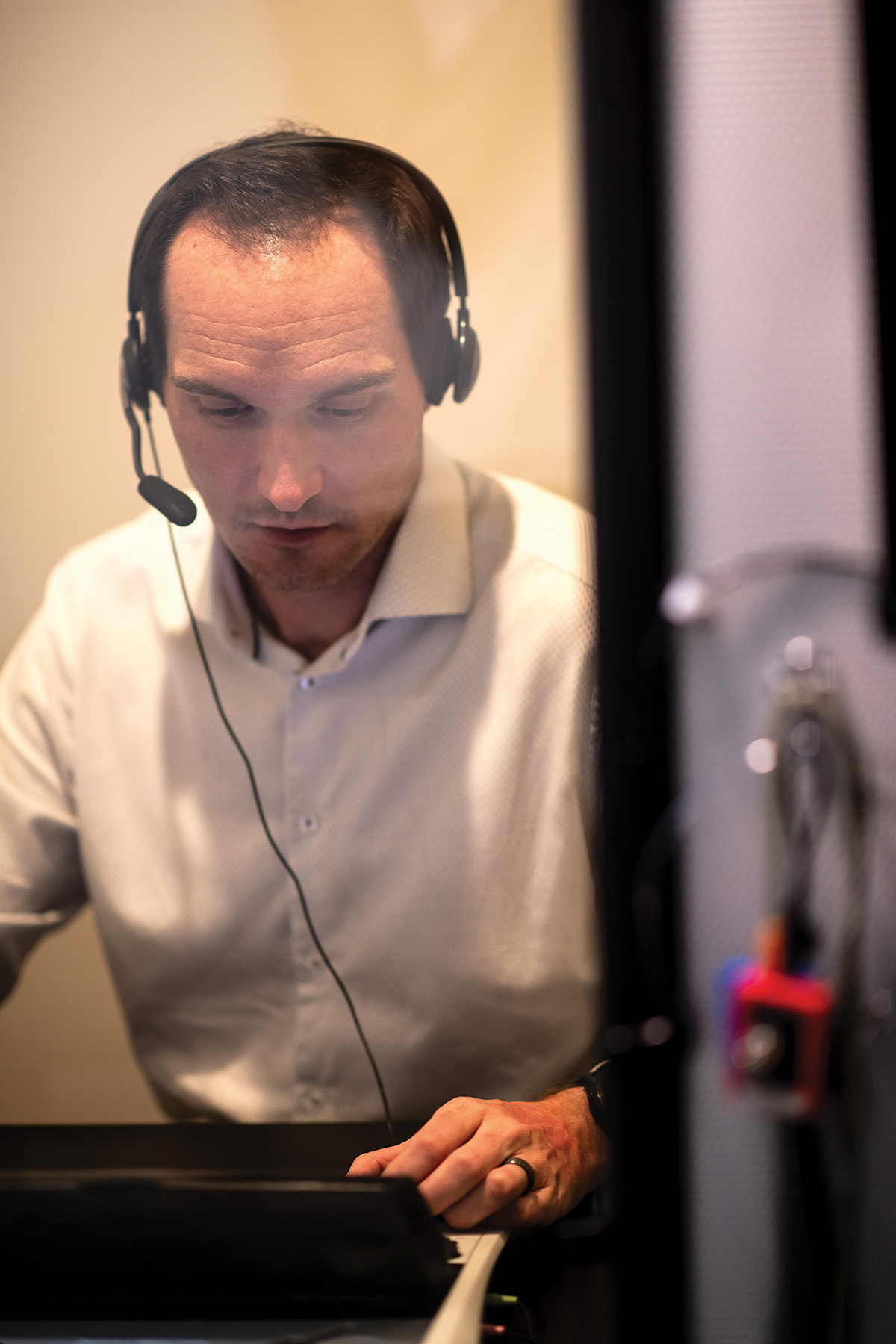
“The earlier the intervention, the better the long-term outcome.”
Curt Culford, audiologist and
owner, Culford Family Hearing
The Danger of Disconnection
“Hearing is the most social sense we have,” says Curt Culford, audiologist and owner of Culford Family Hearing in Collingwood. “Without it, we are isolated.”
The psychological impacts of hearing loss can be devastating. Misunderstandings and difficulty following conversations often lead to social withdrawal, isolation, frustration and depression.
Strype often saw this with her father at the dinner table. Struggling to follow the conversation, he’d instead withdraw, disconnect.
Campbell too, has found herself withdrawing from social interaction, especially as her hearing has deteriorated. Restaurants, bars and even friends’ homes require so much fiddling with her hearing aid settings and so much mental energy to participate in conversation that she often prefers to stay home.
Because hearing loss happens gradually, people often fail to recognize how bad their hearing has become as well as how much they accommodate for it (like by avoiding noisy places or turning the TV volume up).
It can be frustrating for those on the other end of the conversation too. “The assumption (on the part of the speaker) is always, ‘You’re not paying attention to me,’” says Rassouli, which only leads to further withdrawal on the part of the listener.
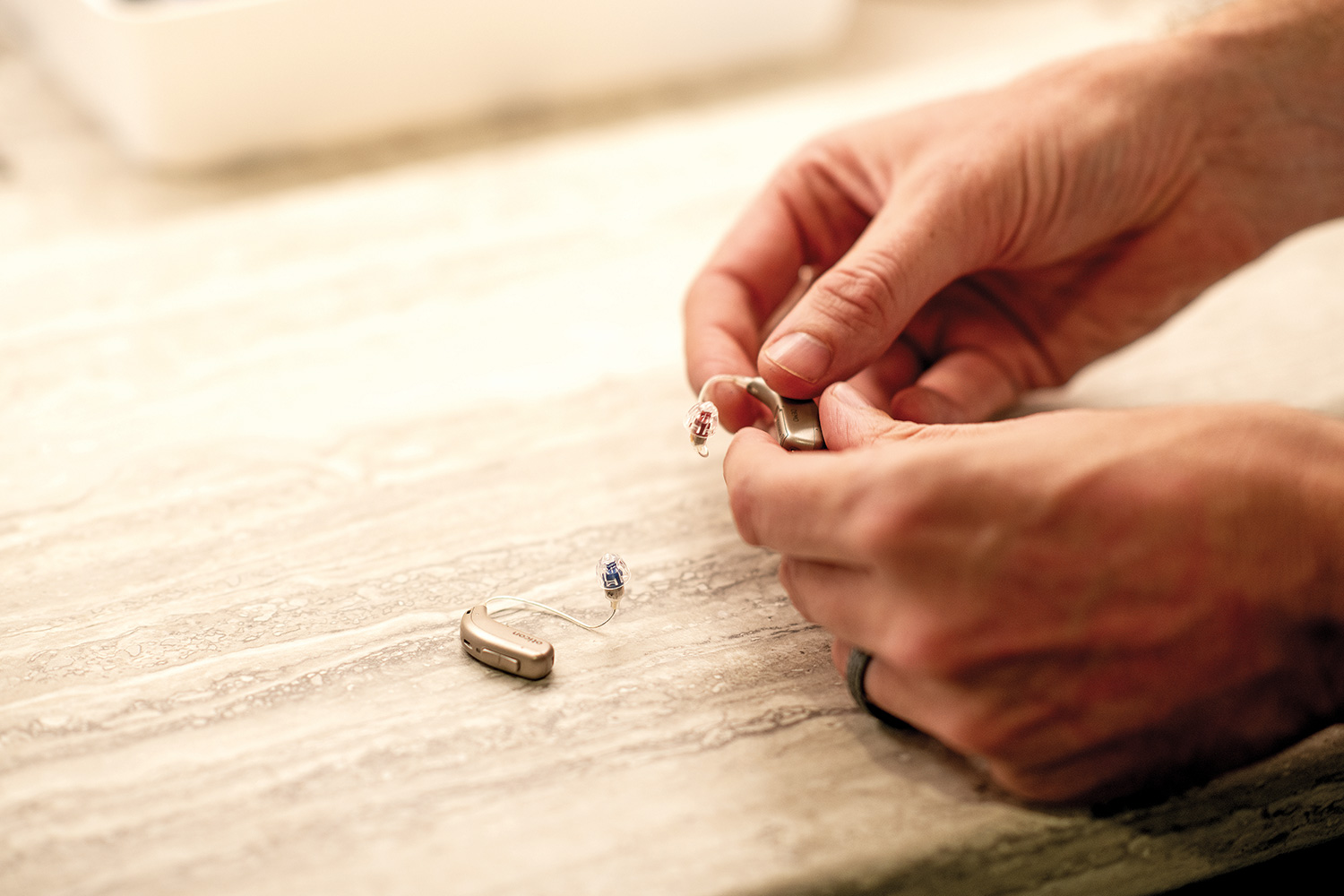
Some Sound Solutions
Treatment for hearing loss is dependent on the type. “Conductive” hearing loss, which is caused by a blockage or abnormality of the outer or middle ear, is treated with medication or surgery, and can often be cured. “Sensorineural” hearing loss is the result of damage to the inner ear or the auditory nerve. It’s the most common type of hearing loss and it can’t be reversed. But it can be treated.
Cochlear implants are a solution for some individuals with profound hearing loss. These devices are surgically implanted to stimulate the auditory nerve directly, bypassing the damaged parts of the ear.
Hearing aids are by far the most common treatment for hearing loss though, and they’ve evolved significantly in recent years. Most new hearing aids boast Bluetooth connectivity, smartphone apps for customization, and rechargeable batteries—along with being more discreet than ever.
What matters most, says Culford, is that they are properly fitted and programmed for your own unique set of considerations. You also need to be taught how to use them. Says Culford, “You can have the best hearing aid available, but it won’t be helpful if you’re unable to wear it or don’t know how to operate it.”
Whether entry-level, mid-range, or premium, hearing aids can be prohibitively expensive. Culford likens them to computers with different levels of processors—the more sophisticated the technology, the better their performance, especially in noisy environments. “Basically,” he says, “you get what you pay for.”
And you’ll likely be paying a lot. Though Ontarians are eligible for a $500-per-ear Assistive Devices Program grant, hearing aids will still cost you anywhere from about $3,000 to well over $7,000 a pair.
Strype recently moved up from an entry-level to a mid-range aid because the difference in quality was astounding. It’s a jump in price that she’s grateful she could make.
Campbell, too, has recently been able to move into better quality-hearing aids, which have allowed her to hear the little sounds she’d always missed, like the rain or the rustling of tree leaves in the wind.
“I used to sit at the cottage and just watch them, but I didn’t realize that they made a sound,” Campbell says.
For the Hear and Now
As wearable technology becomes more ubiquitous and devices like wireless earbuds and smart ear plugs continue to be the trend, maybe it won’t be long before hearing aids get their fashion comeuppance.
Until then, we need to look after our hearing, because the emotional, cognitive and social consequences of losing it aren’t worth risking. This means getting regular hearing tests and wearing aids if you need them. Think of it as Strype does—just good self-care.
It’s also time to shed the stigma and begin fostering a more understanding, empathetic and supportive environment for those living with hearing loss—because there’s a good chance it’ll one day be you.






